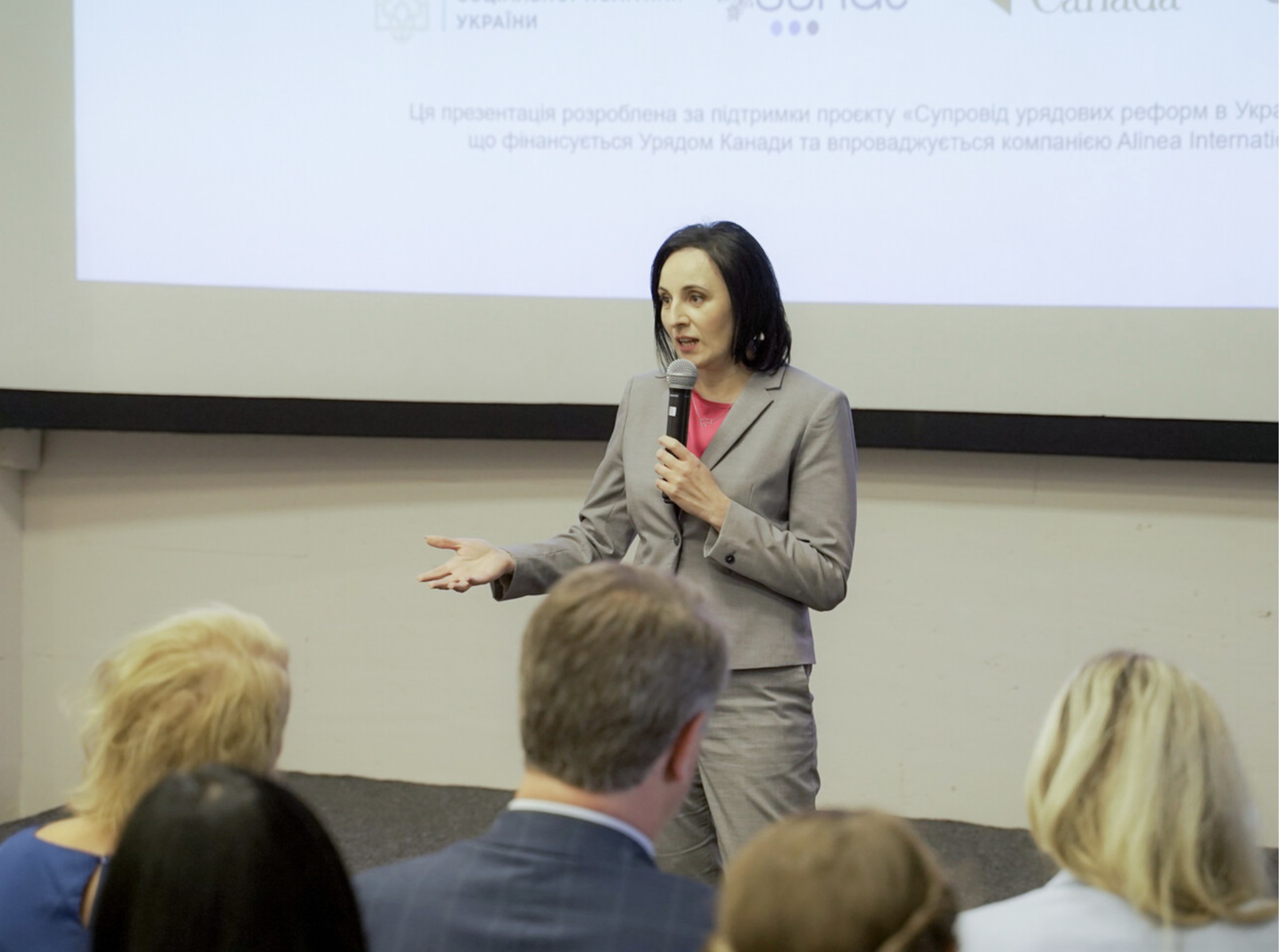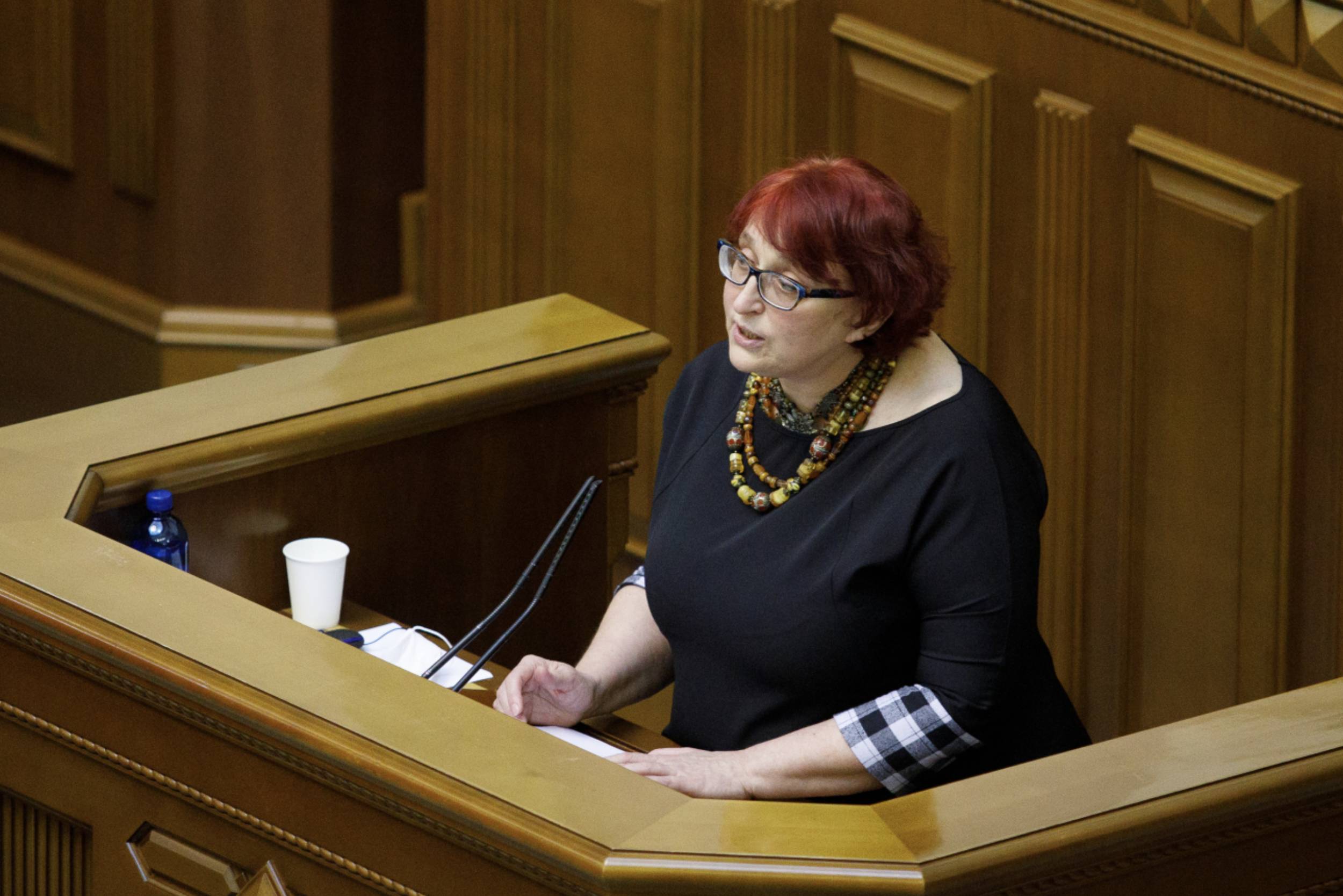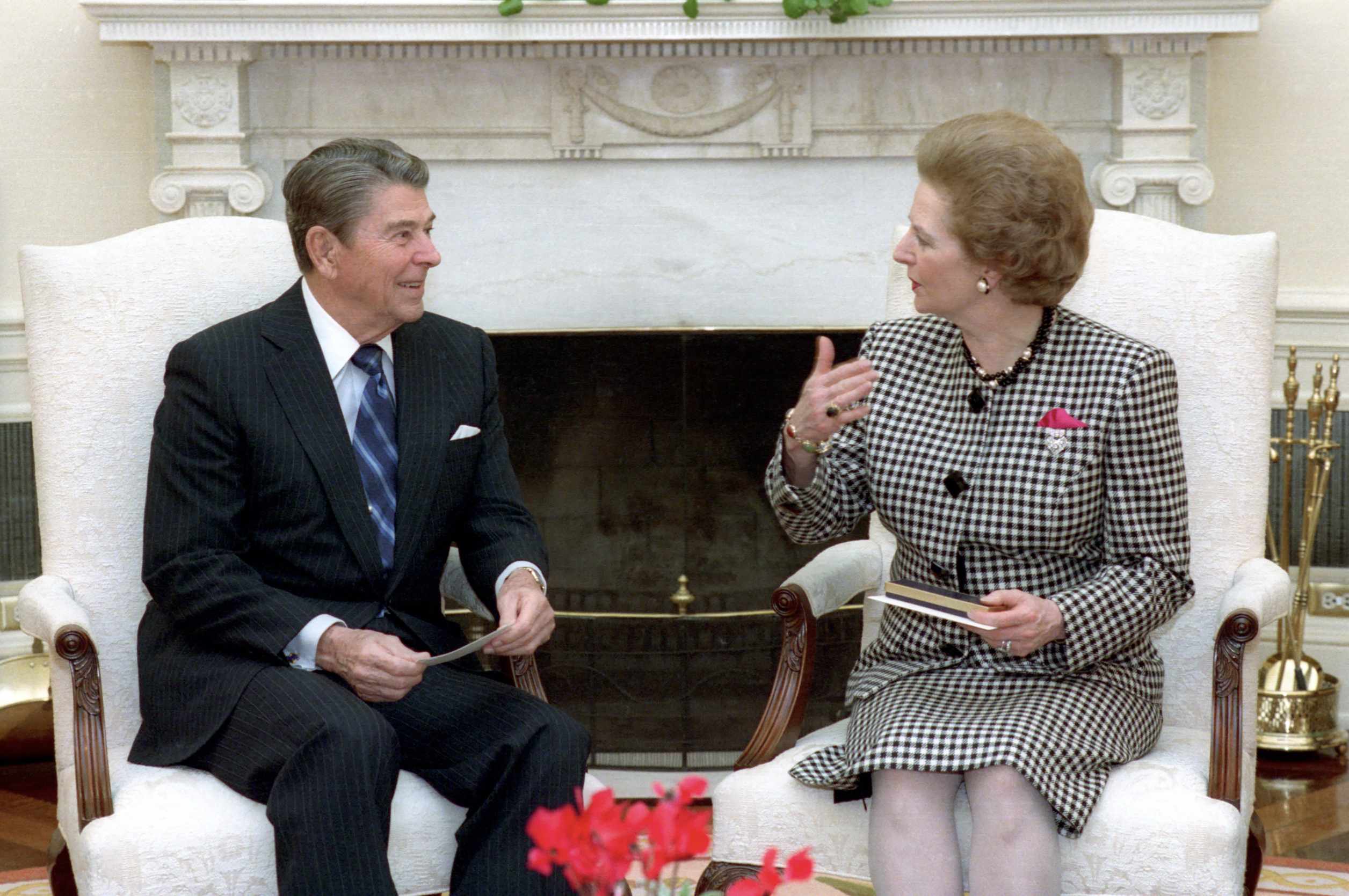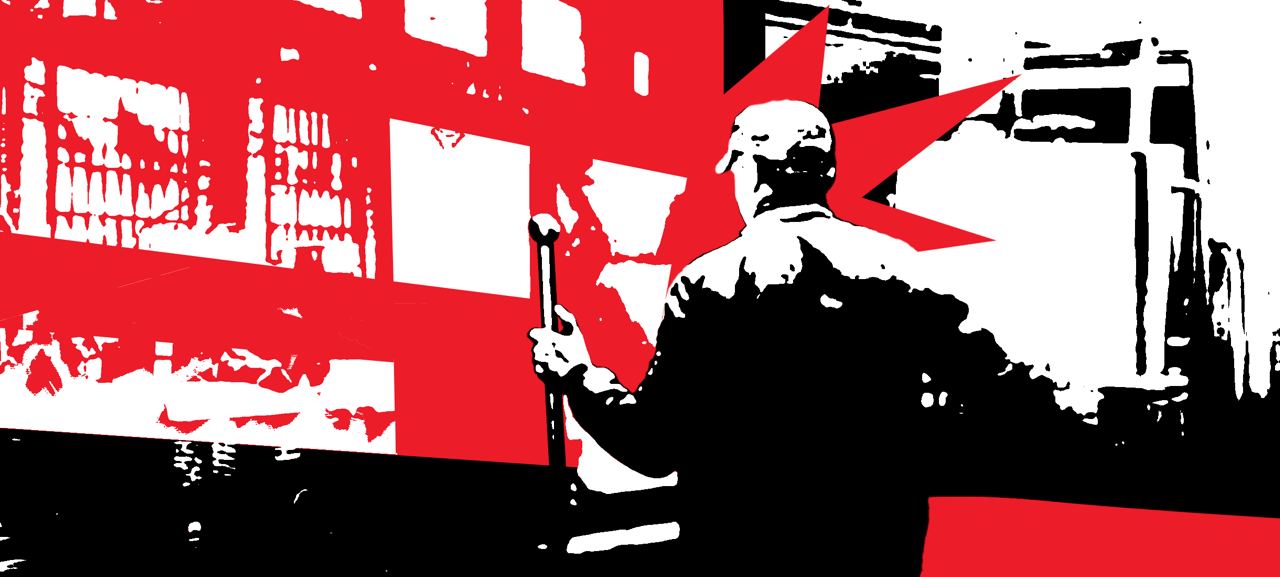The recent statements of Minister of Social Policy Oksana Zholnovych about "destroying everything social" and "taking Ukrainians out of their comfort zone" have caused significant public outcry and a wave of criticism. Yet this is not the first time that officials directly involved in social policy have publicly taken anti-social stances. What does the presence of people like Tretyakova and Zholnovych in the government indicate – personnel mistakes or a deliberate policy aimed at discrediting the ideas of social solidarity and the complete marginalisation of people in need of social assistance?
In her statement at the International Forum for Sustainable Development, Oksana Zholnovych reminded us of the attitude of the Ministry of Social Policy towards society:
"We need to break everything that is social today and simply create a new social contract on social policy in our country from scratch. Many citizens are, in a sense, teenagers: "The state owes us a duty of care and assistance, but I will not take part in my personal development and personal life, I am not ready to take responsibility." And this is the philosophy that we must definitely break."
Zholnovych's words about the "comfort zone" particularly angered the Ukrainian public. Critics reasonably ask which Ukrainians are in their comfort zone after more than a year and a half of full-scale war and several decades of underfunded social policy. Zholnovych's statement continues the "good old" tradition of Ukrainian politicians infantilising recipients of social assistance by dividing society into "responsible citizens" and dependent "teenagers".

Minister of Social Policy Oksana Zholnovych. Photo: Ministry of Social Policy of Ukraine/Facebook
In addition, the full-scale invasion has intensified negative trends in social policy. Neoliberal notions that all problems should be solved individually and on one's own risk losing popularity even among those Ukrainians who are close to these ideas. The massive destruction of housing, widespread physical and psychological trauma, catastrophic economic consequences of the war and much more have significantly expanded the number of people who require assistance to survive and rehabilitate themselves. Therefore, the number of those who will read the neoliberal sermons of Minister Zholnovych and think: "how good it is to be a decent middle-class representative against the background of pensioners, the sick and other “freeloaders”, will rapidly decrease. But it seems that Ukrainian politicians have not yet realised that their anarcho-capitalist fantasies are incompatible with the challenges of war and increasing dependence on the EU, with its less cannibalistic social order.
Zholnovych demonstrates a complete lack of understanding of the social and historical roots of inclusive social policy. Although different countries have very different approaches to its formation – from the sophisticated private systems of Switzerland to the broad egalitarian systems of the Scandinavian countries – they all share an understanding of the functional importance of social policy. No matter who is in power – conservatives, liberals or leftists – in countries with entrenched social institutions, no one (especially not the Minister of Social Policy!) can afford to declare their intention to “destroy the social". No one can afford to say – as Galina Tretyakova, head of the Verkhovna Rada Social Policy Committee did – that payments to parents lead to "low-quality children", or complain that people "eat too much", as Andriy Reva, Zholnovych's predecessor in the ministry, did (referring to Germany, which has one of the most generous social systems). No one can afford this, because social policy preserves what sociologists call social cohesion.

Galina Tretyakova, chairwoman of the Verkhovna Rada Social Policy Committee. Photo: Vitaliy Nosach
If Zholnovych, Tretyakova or Reva had attended their first-year undergraduate sociology lectures, they would know that the question of how to keep societies integrated was a key one for the founding fathers of sociology. For Zholnovich and company, I offer the following little primer.
With the development of capitalist relations, new social groups emerged and rapidly expanded. Some of them, for various reasons, could not integrate into society and solve their problems through purely market mechanisms. These groups included, in particular, the new class of industrial workers. Workers needed health insurance in case of work-related injuries – this is why, and in response to the labour movement, health insurance emerged in Germany. Elderly people and children could also no longer rely on family members to take care of them, as different generations increasingly lived apart and women began to work. In order to prevent the complete breakdown of society during these fundamental transformations, social assistance mechanisms were introduced to replace the weakened family and communal support schemes.
The wave of institutionalisation and expansion of social programmes also took place after the Second World War – after a large-scale catastrophe, many countries realised the need to integrate all members of society. It is no coincidence that after the Second World War, human rights were also systematised in their current form, where socio-economic rights are no less important than political ones. Expansion of social programmes and guarantees is almost always an indicator of democratisation of society, not "laziness". Each country has its own history, but all old and relatively well-functioning social support systems are responses to fundamental historical challenges, not the realisation of radical capitalist fantasies.
Where do such valuable specialists as Zholnovych and company come from? This rhetoric is not specifically Ukrainian, but has its roots in neoliberal economic thought. Its main features are: hostility to social solidarity and the social function of the state, economism (focusing exclusively on macroeconomic indicators such as GDP), radical individualism and an understanding of market forces as the basis of social relations. This doctrine has existed for a long time, but its practical implementation began in the 1970s. Margaret Thatcher and Ronald Reagan – probably the most famous representatives of neoliberal policies – implemented their reforms in the 1980s. This means that Western countries have long been familiar with the consequences of neoliberalism (mostly negative).

Meeting between British Prime Minister Margaret Thatcher and US President Ronald Reagan in the Oval Office, 16 November 1988. Photo: open source
Thatcher and Reagan were politicians in Britain and the United States, countries historically known for less generous social systems than most continental European countries. The situation with social policy in Britain and the US is not as rosy as Boris Johnson's Ukrainian supporters may think. Housing crises are ongoing in both countries. In the healthcare sector, Britain is expected to collapse – which does not stop Ukrainian medical reformers from pretending that it is the best example to follow. American medicine, on the other hand, is known for its high cost for both patients and the state. At the same time, it is unprecedentedly inaccessible for a country with such a high level of economic development. However, in both countries there has been a corresponding reaction: in Britain, there have been strikes and protests over the healthcare crisis, while in the US there has been successful unionisation of teachers in recent years.
Neoliberal policies were also felt in other European countries – for example, there has been substantial criticism of unemployment policy leading to marginalisation: the state covers only basic needs with benefits, instead of tackling the structural causes of unemployment. Or, to take another example from the healthcare sector, Germany has long had a difficult situation with junior medical staff, which has been exacerbated by the pandemic. However, public attention has not escaped the problem, which has led to the organisation of junior medical staff to fight for their rights – in which they have already achieved some success.
All of these countries have their own (though less "wild") Tretyakovas and Zholnovychs who infantilise people who advocate social solidarity. Like their Ukrainian counterparts, they spread false and populist myths that social support leads to "laziness" and "irresponsibility". But they are not popular enough to be able to "destroy everything social", and they certainly do not hold positions in the Ministry of Social Policy.
Many people from Ukraine are now integrating into European social systems. The example of Ukrainian refugees shows two things. First, that institutions ensure the existence of generous social support mechanisms even when European Tretyakovas and Zholnovychs appeal to social chauvinism, calling for savings at the expense of non-citizens. Secondly, that assistance in crisis situations leads to faster and better integration into society, rather than to "irresponsibility". This is evidenced by the statistics on employment of Ukrainian refugees, which, unfortunately, is often used in Ukrainian society to show that "responsible" Ukrainian women do not want to "sit on welfare" and are therefore much better off than other refugees. This, of course, ignores the conditions in which refugees from other countries find themselves – the intellectual disciples of Ukrainian neoliberals do not understand the important role that "social" has played in the achievements of their female compatriots.
Why anti-social and primitive libertarian rhetoric remains widespread among Ukrainian authorities and in mainstream debate is an open question. There are many explanations. For example, it could be due to political and ideological battles that give Tretyakova and others like her carte blanche to call everything they don't like "socialist". The peripheral status of Ukraine – dependent on strong countries and unable to deviate from the global course of cutting social programmes and spending – may also have an impact. However, none of these arguments are convincing enough to sacrifice social solidarity by copying the worst and most failed models.
When Zholnovych tries to give her lectures an intellectual flavour and says that she will "reformat the social contract", she does not explain what the essence of this contract will be if the social function of the state is self-destructive through the efforts of her and her colleagues. She does not explain why those who left the country because of the war should return from functioning European systems to post-war Ukraine, where conditions will be difficult in any case, and the efforts of "reformers" may become simply inhumane. She does not explain the role of the military and all those affected by the war in the "contract" with the state, which can only remind them of "personal responsibility" for solving massive social problems. If Zholnovych and company’s scenario becomes reality – where "reformers" make concessions and support the military, but abandon the rest of society – Ukraine will face a catastrophic polarisation of society . Otherwise, we risk disintegration altogether if even those who are saving Ukrainian society from occupation receive nothing for their service. By "destroying everything social" with her "new social contract", Zholnovych will destroy not only social programmes, but also the possibility of the coherent existence of Ukrainian society.



